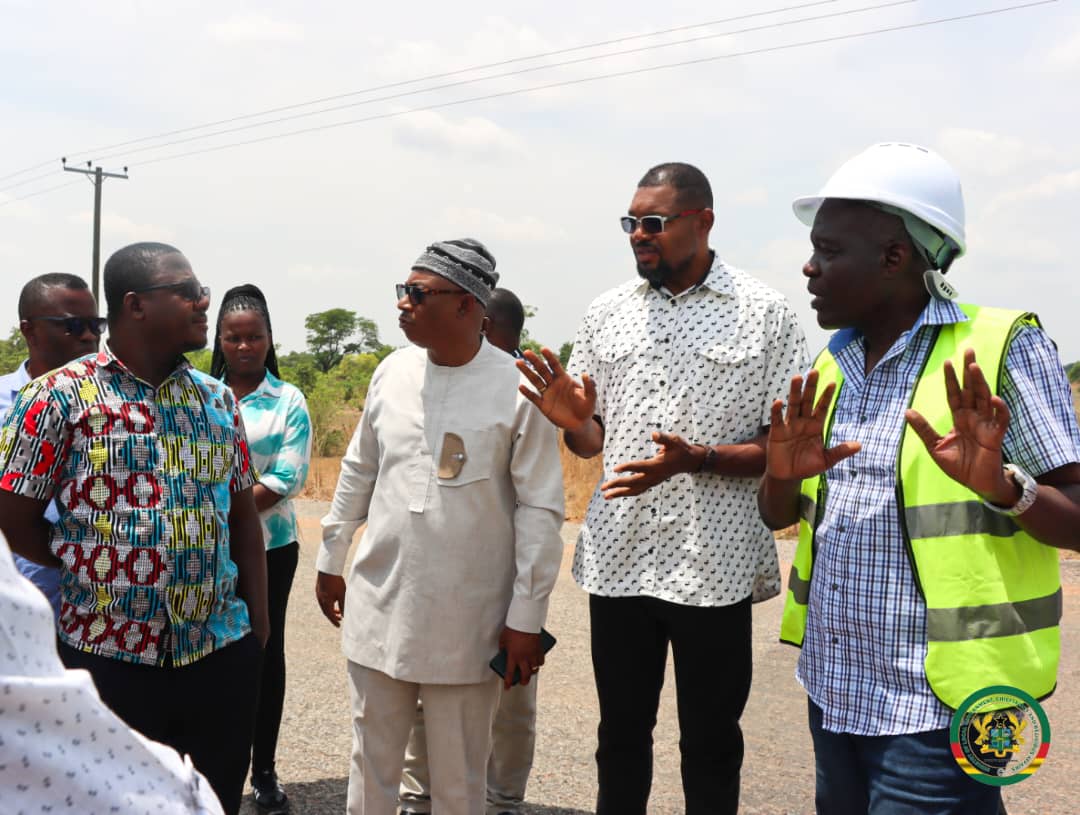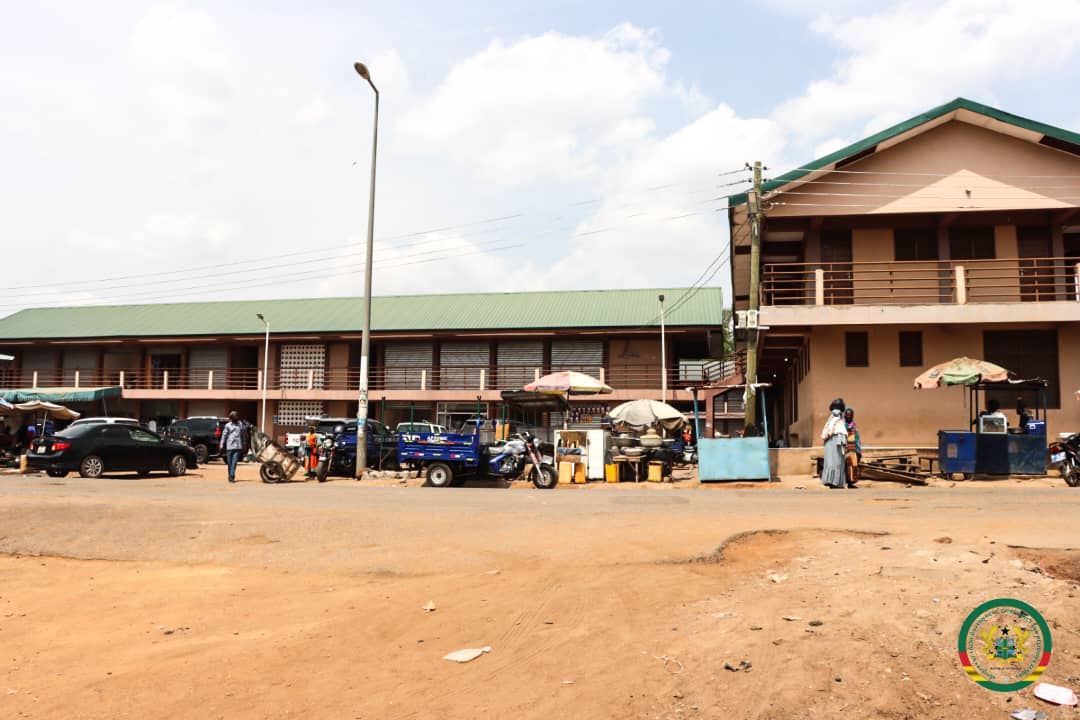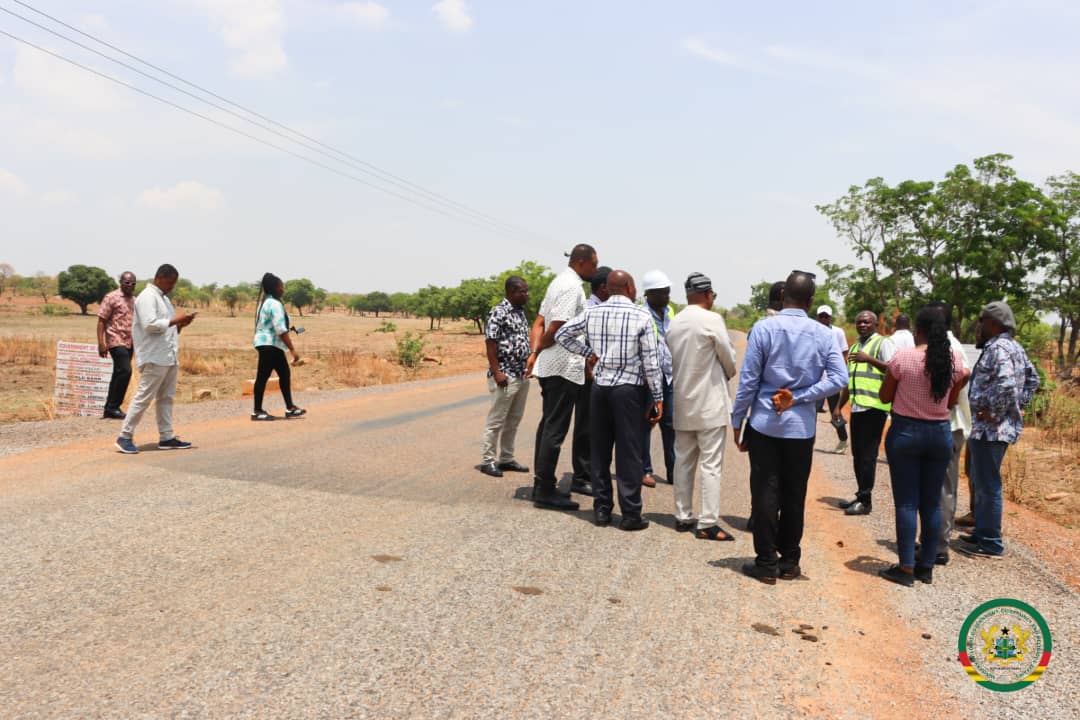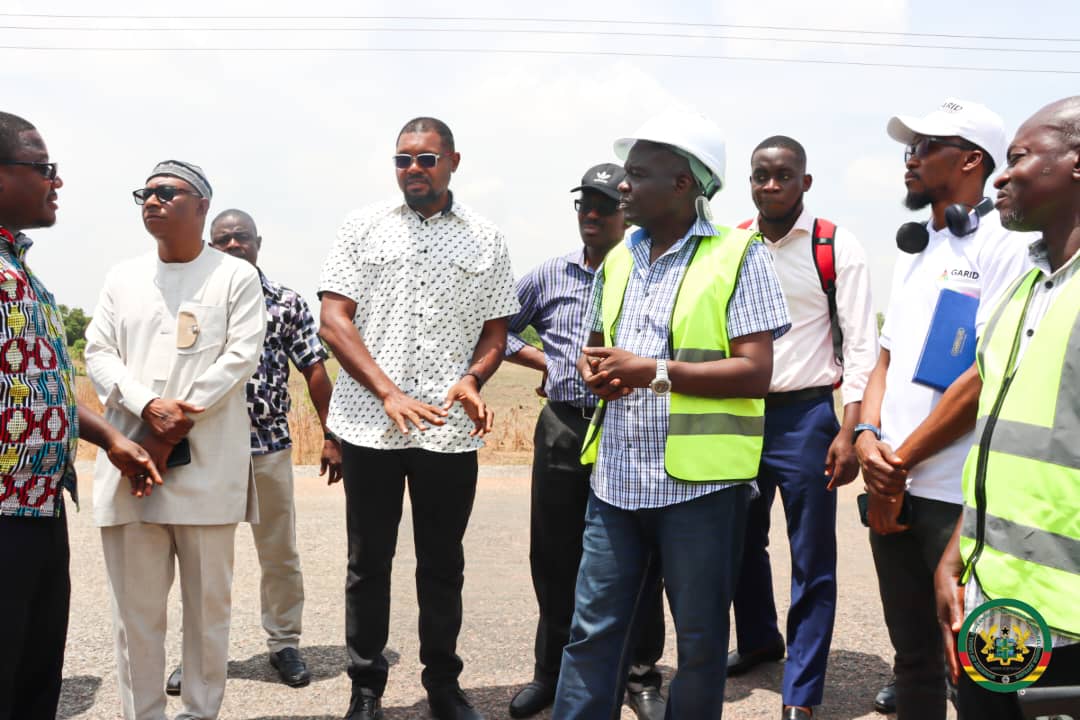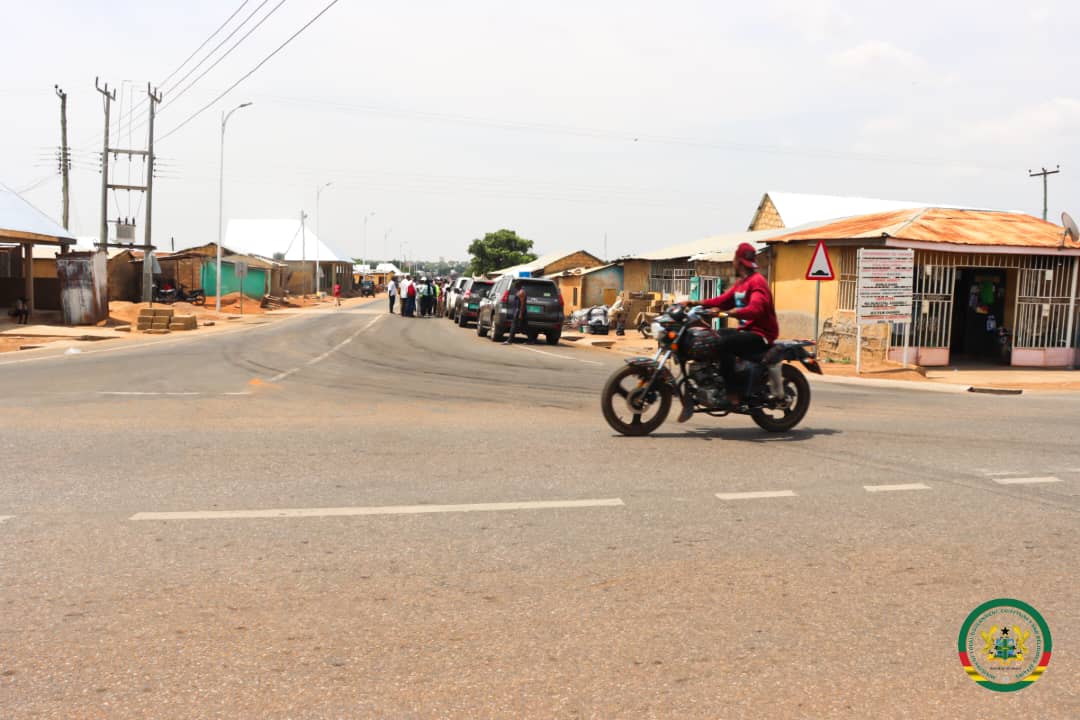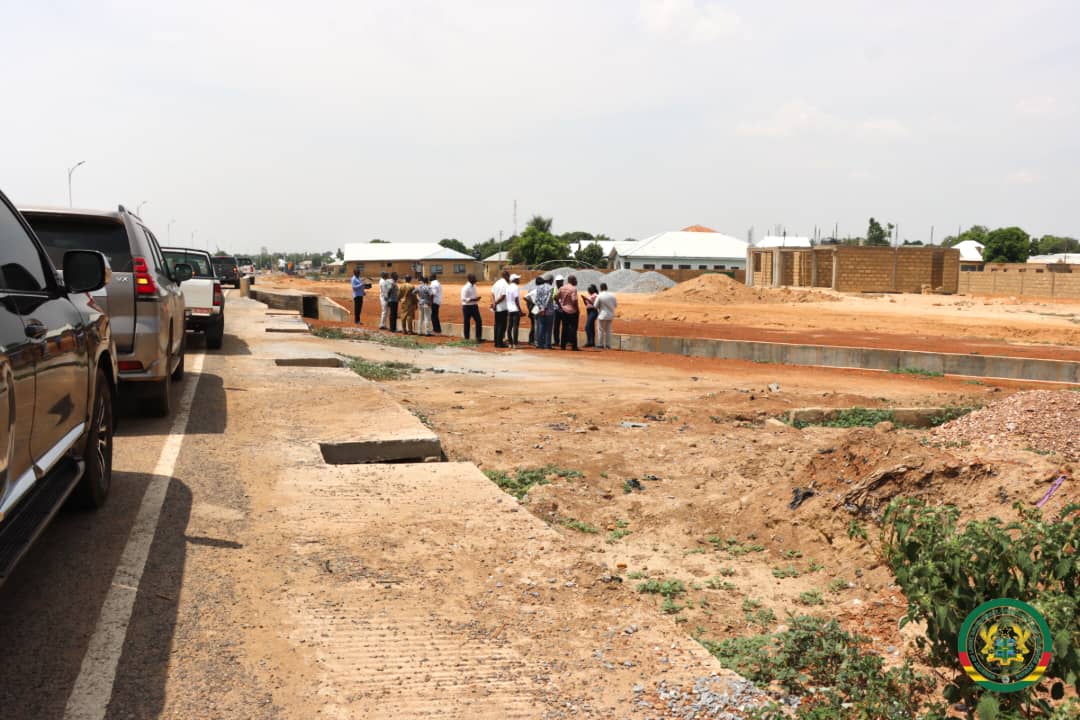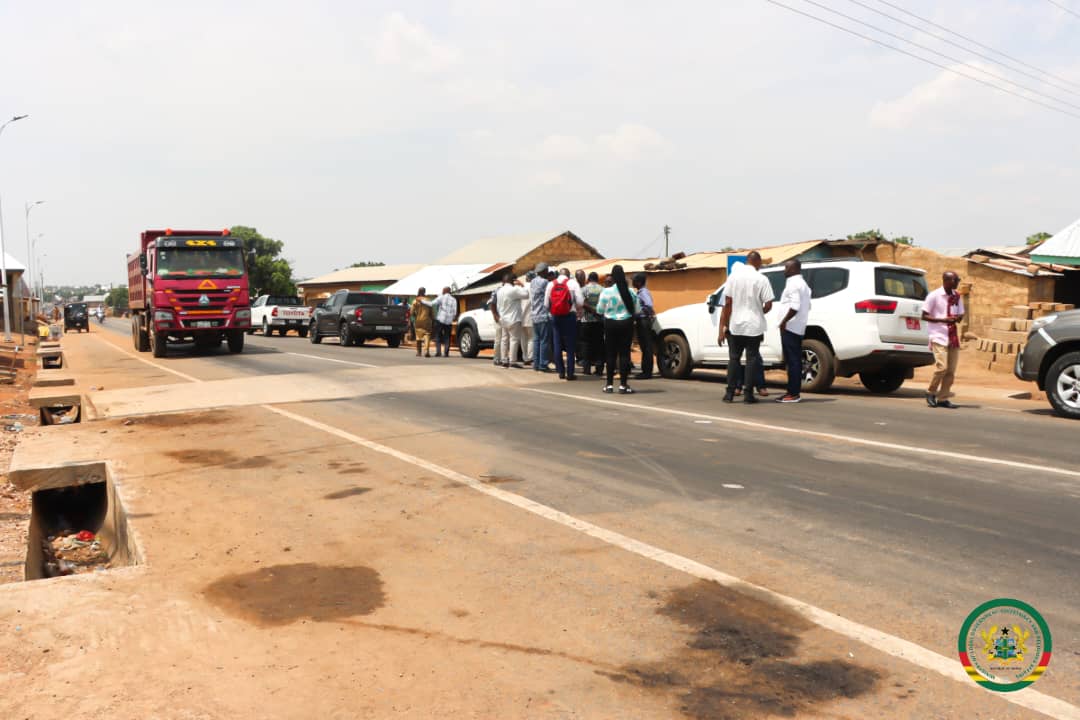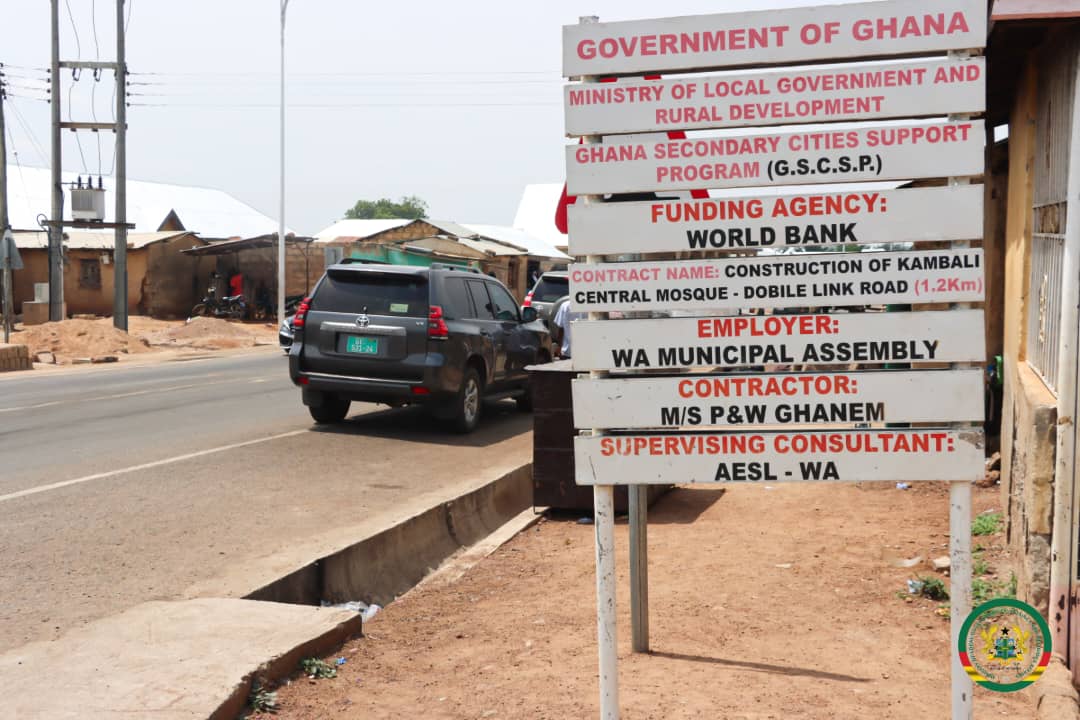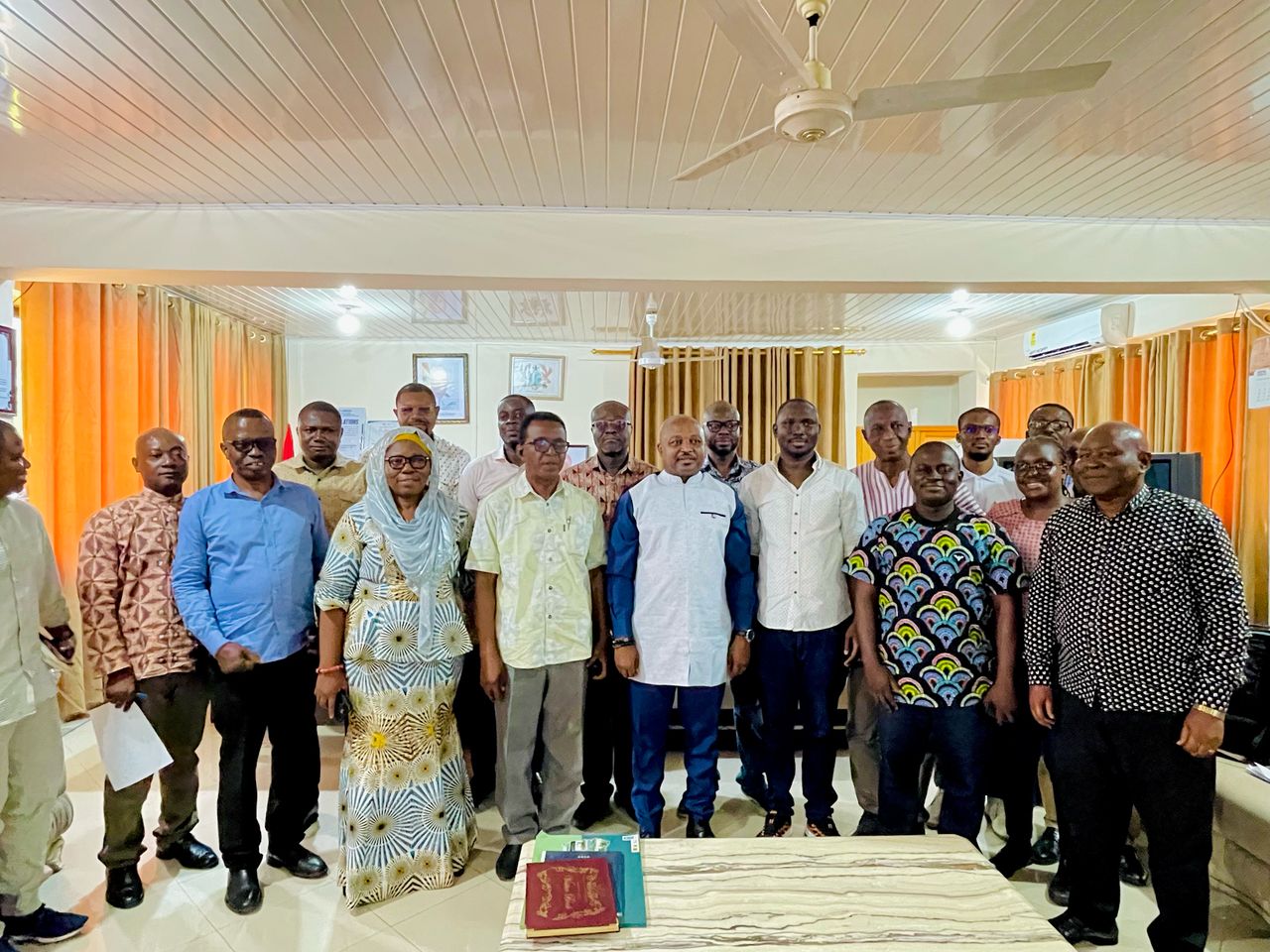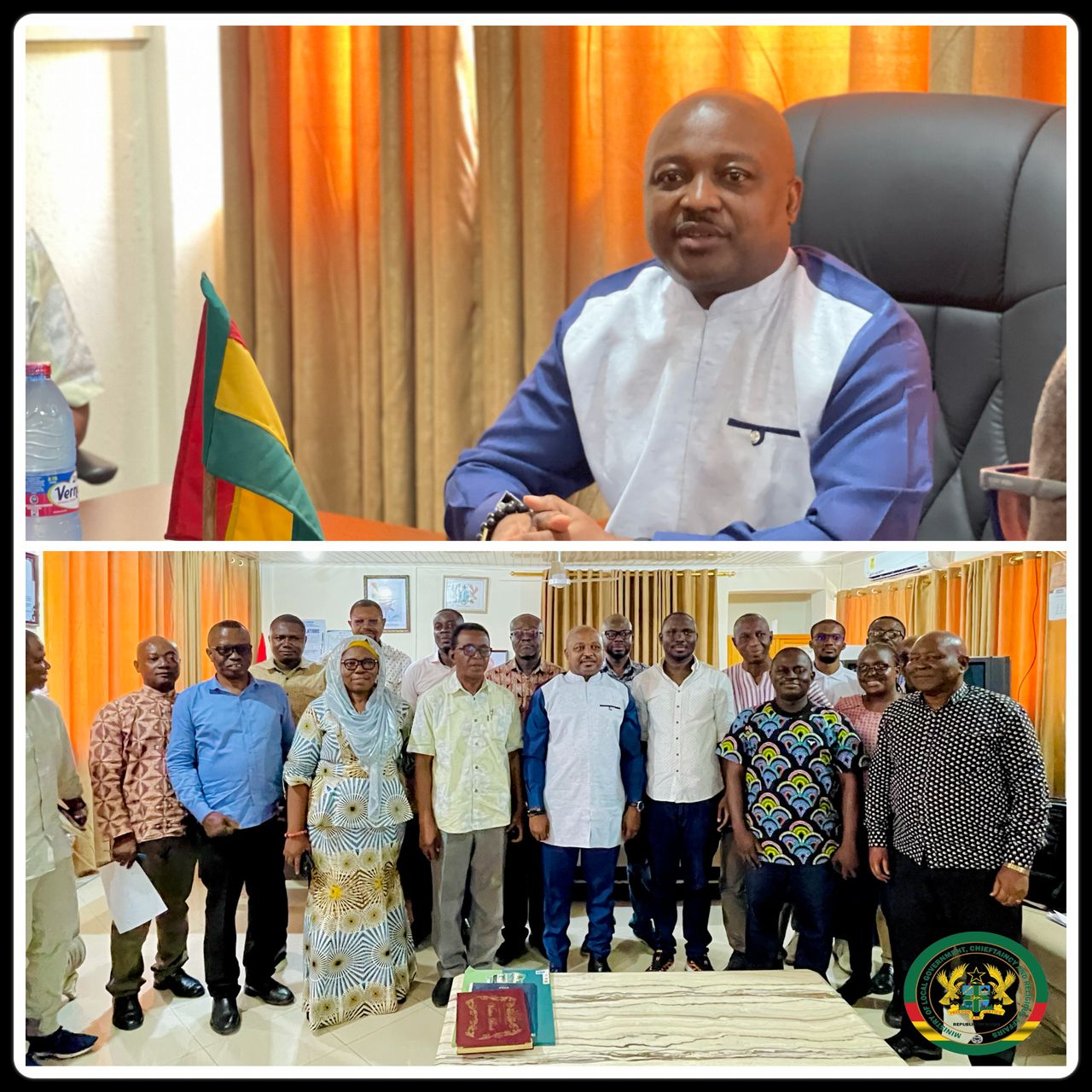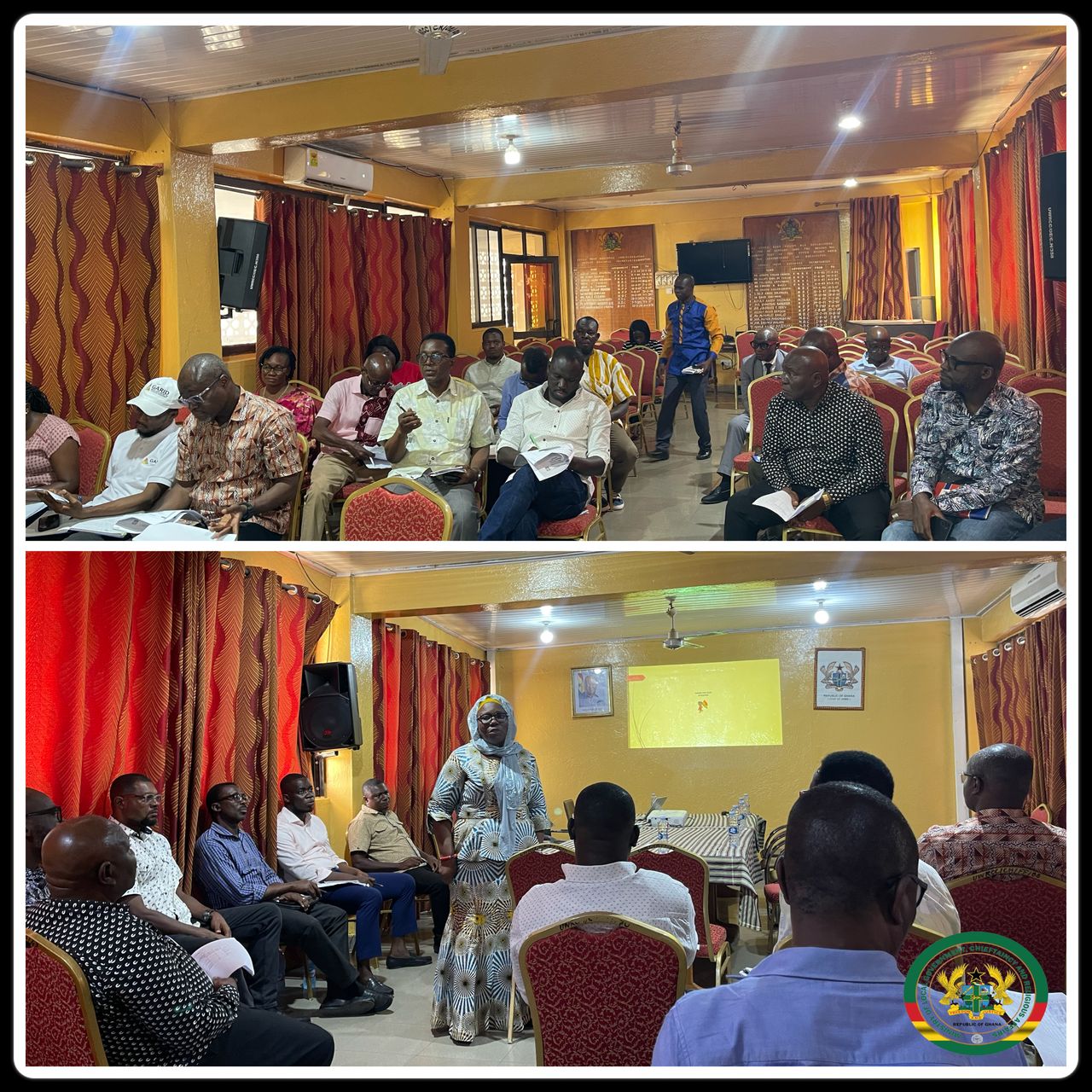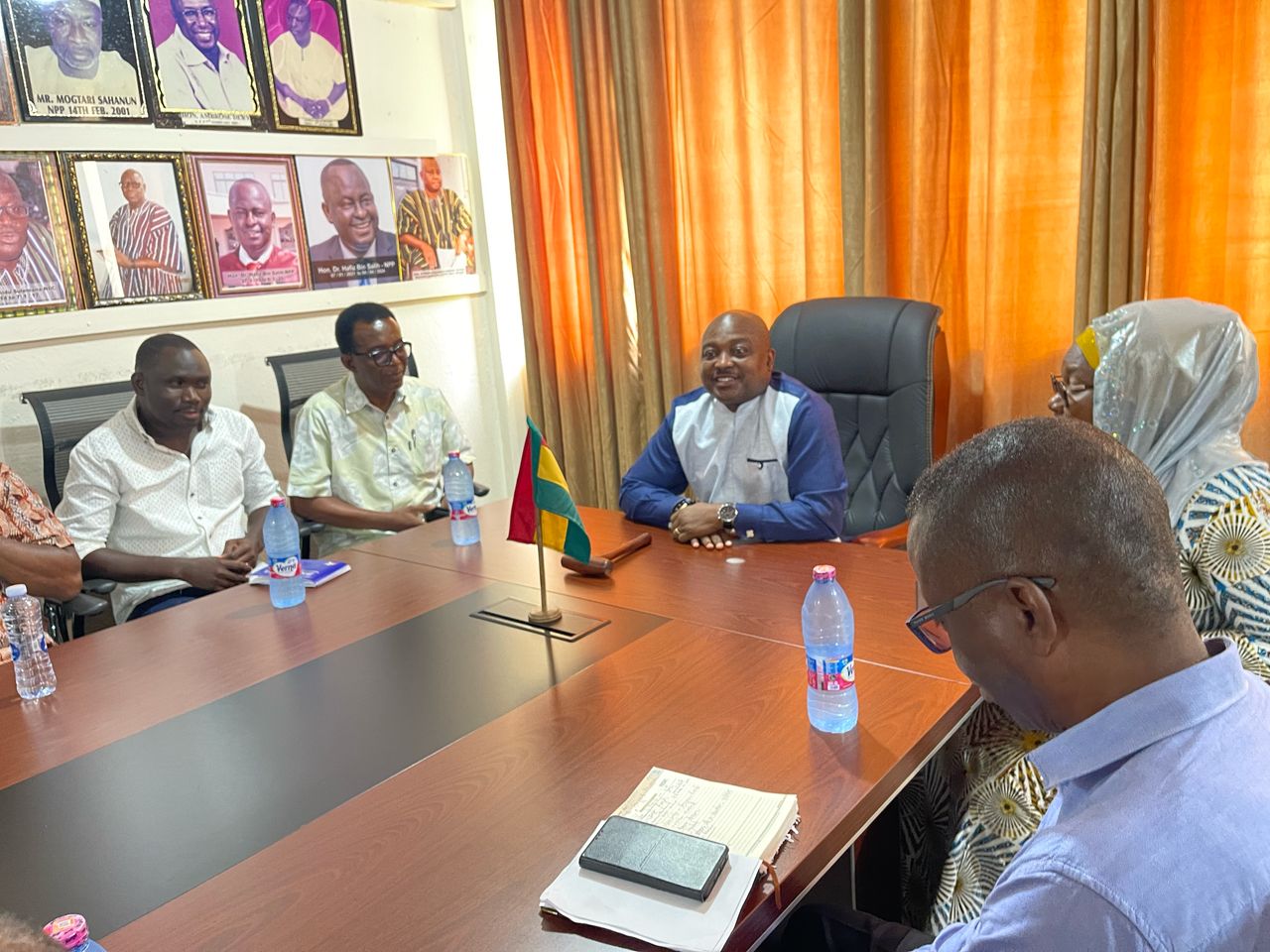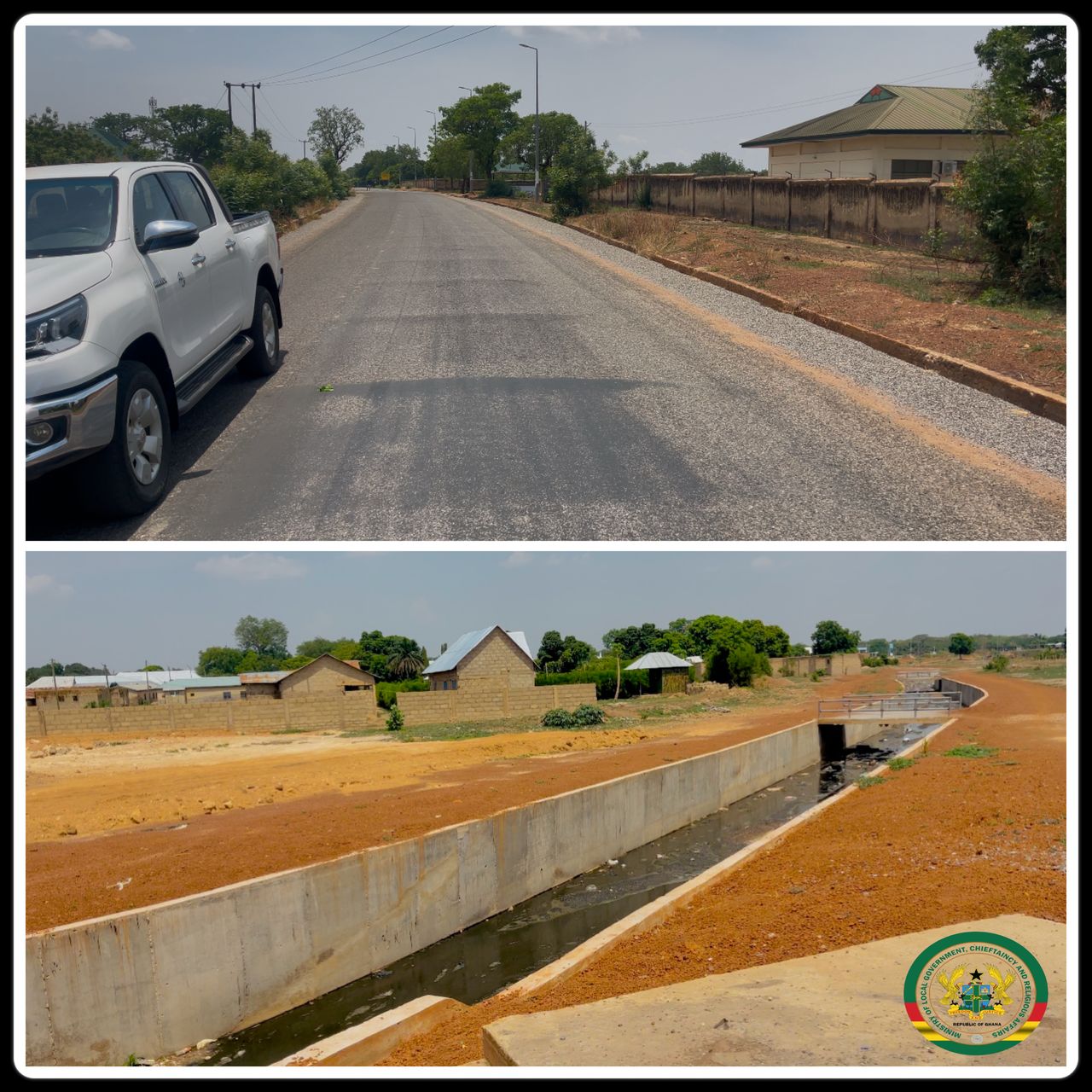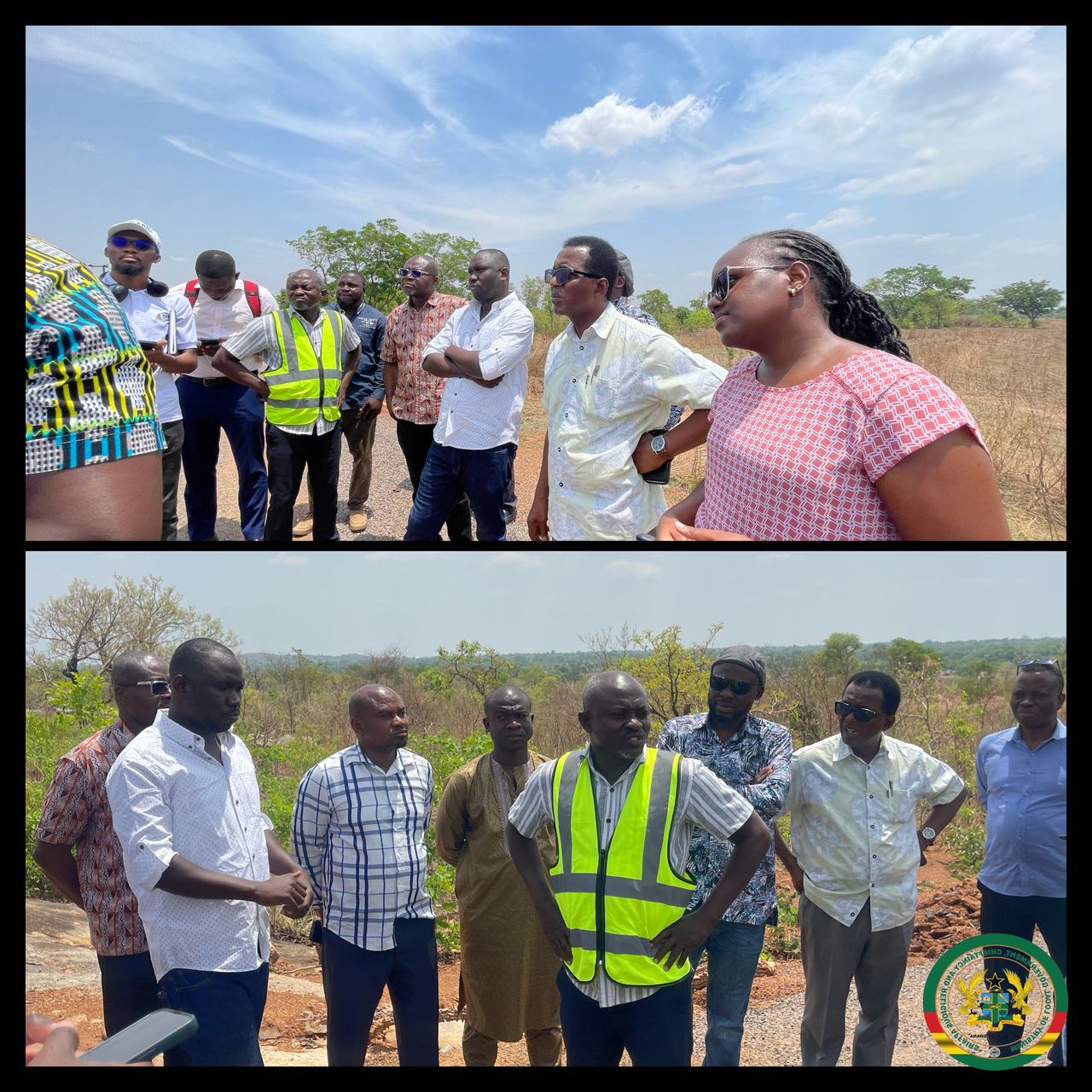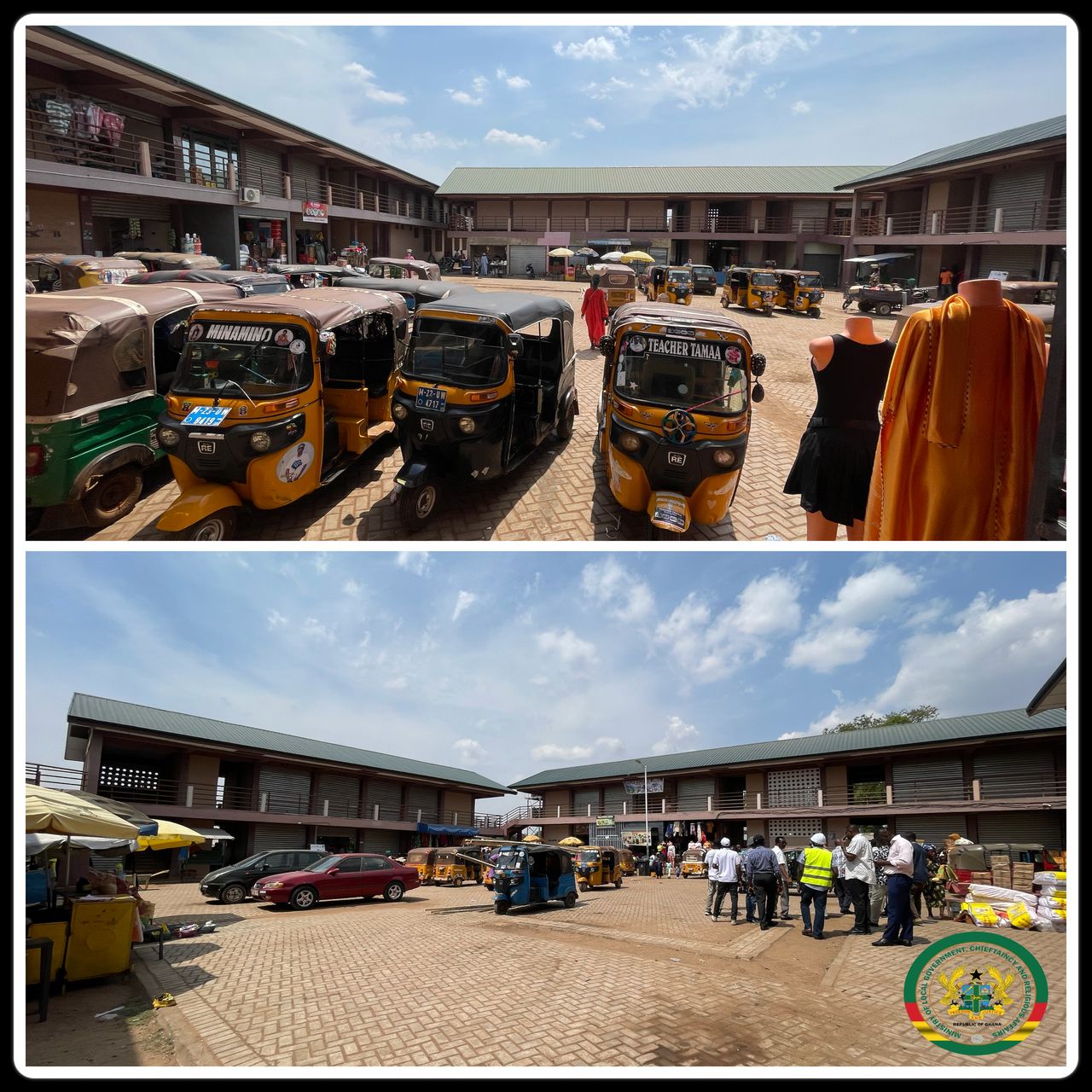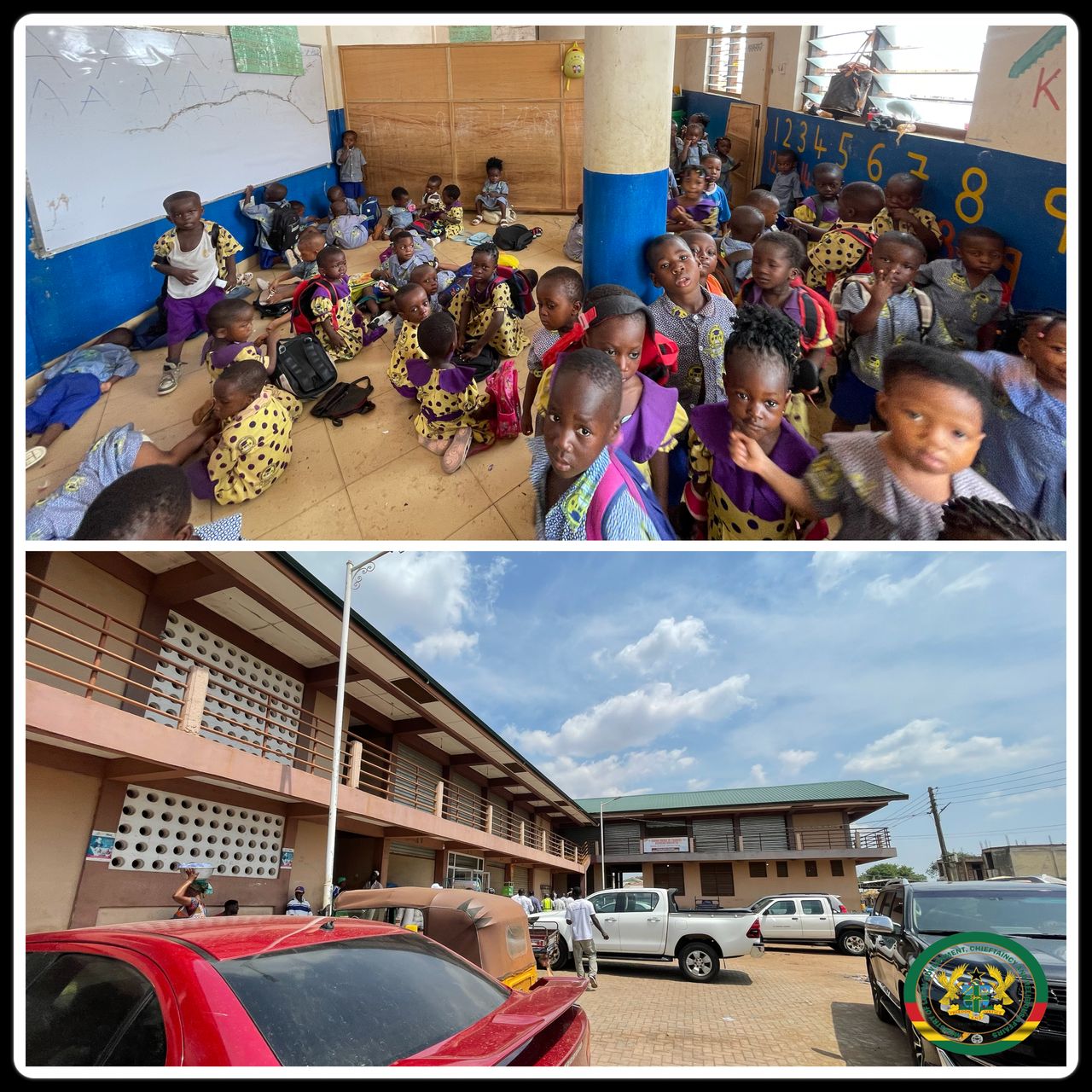World Bank and Partners Embark on Implementation Support Mission under the Ghana Secondary Cities Support Programme (GSCSP)
The World Bank, in collaboration with the Ministry of Local Government, Chieftaincy and Religious Affairs (MLGCRA), the Ministry of Finance, the Office of the Head of Local Government Service (OHLGS), and other key agencies, embarked on an Implementation Support Mission (ISM) under the Ghana Secondary Cities Support Programme (GSCSP), with field visits commencing in the Upper West Region, Wa, on April 8, 2025.
On the first day of the Mission, the team conducted monitoring visits to the Upper West Regional Coordinating Council (RCC) and the Wa Municipal Assembly (MA). These engagements formed part of the broader exercise aimed at reviewing implementation progress and assessing the impact of ongoing urban development sub-projects funded through the Urban Development Grants (UDGs) and the Capacity Support Grant (CSG).
The GSCSP, a flagship initiative designed to strengthen urban governance and service delivery in selected secondary cities, operates through two core financing components; the Urban Development Grant (UDG) and the Capacity Support Grant (CSG). The UDG provides performance-based funding to Municipal Assemblies to implement infrastructure projects that enhance mobility, economic activity, and urban resilience. The CSG, on the other hand, focuses on building the institutional capacity of Assemblies, supporting training and technical systems to improve financial management, planning, and local revenue mobilisation.
Within the implementation framework, Regional Coordinating Councils (RCCs) serve as the coordinating and supervisory bodies that provide oversight and technical guidance to the Assemblies, ensuring alignment with national standards. Municipal Assemblies (MAs) are the principal implementers of the Programme, responsible for planning, executing, and reporting on project delivery within their jurisdictions.
As part of the day’s field activities, the team inspected several key projects including the rehabilitation of the VA Jengabari Road (3.9 km) executed by Okiss Co. Ltd, the construction of the Kambali Central Mosque, Dobile Link Road (1.2 km) by M/S P&W Ghanem, and the upgrading of local road and transport infrastructure by M/S Asichaba Investment Ltd. These interventions are contributing significantly to improving urban mobility, access, and economic vibrancy within the municipality.
Beyond physical inspections, the delegation held working discussions with the Assembly’s implementation team to understand the broader developmental impact of the Programme. A key highlight from these interactions was the notable rise in internally generated revenue (IGR) reported by the Wa Municipal Assembly. According to officials, the construction of a new market under the GSCSP had stimulated economic activity, enabling the Assembly to allocate and lease market stalls, which translated into increased revenue performance.
Additionally, under the Capacity Support Grant, revenue officers received targeted training aimed at enhancing their capabilities in mobilizing revenue through innovative and efficient practices. This institutional strengthening has further contributed to the municipality’s improved financial health.
While the GSCSP continues to contribute to multiple development areas within the Assembly, officials emphasised that the revenue growth stands out as one of the most measurable and impactful outcomes of the Programme so far.
Source: Darling Maame Efua Cann/Sandra Owusu Asamaoah/Stephanie Edem Klutsey
(Public Relations Unit MLGDRD)

